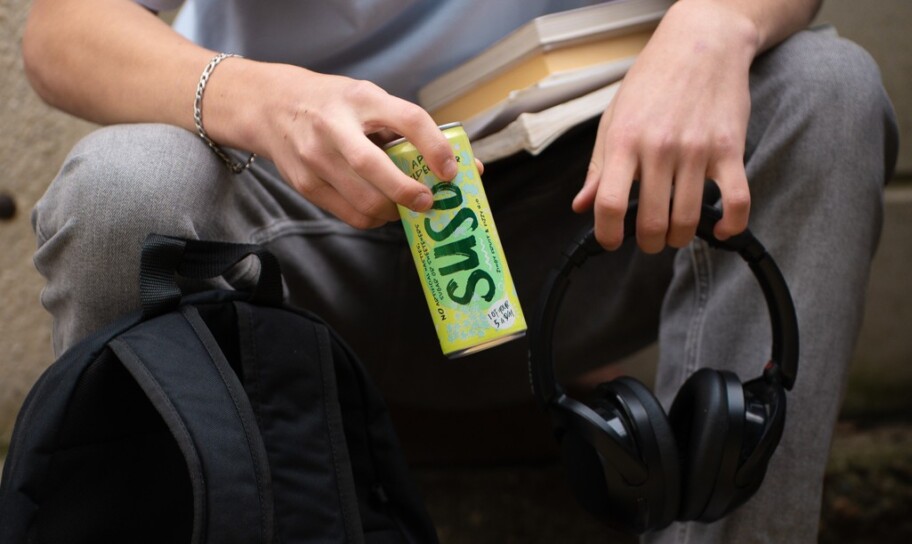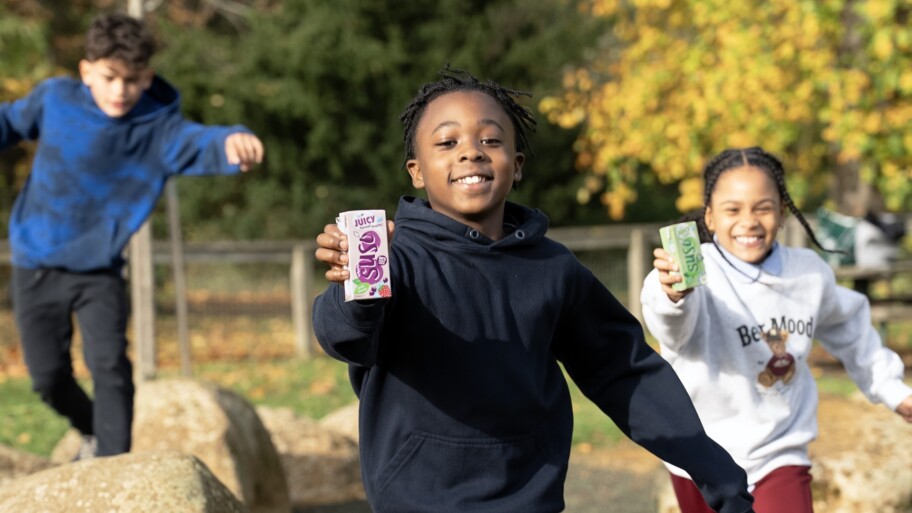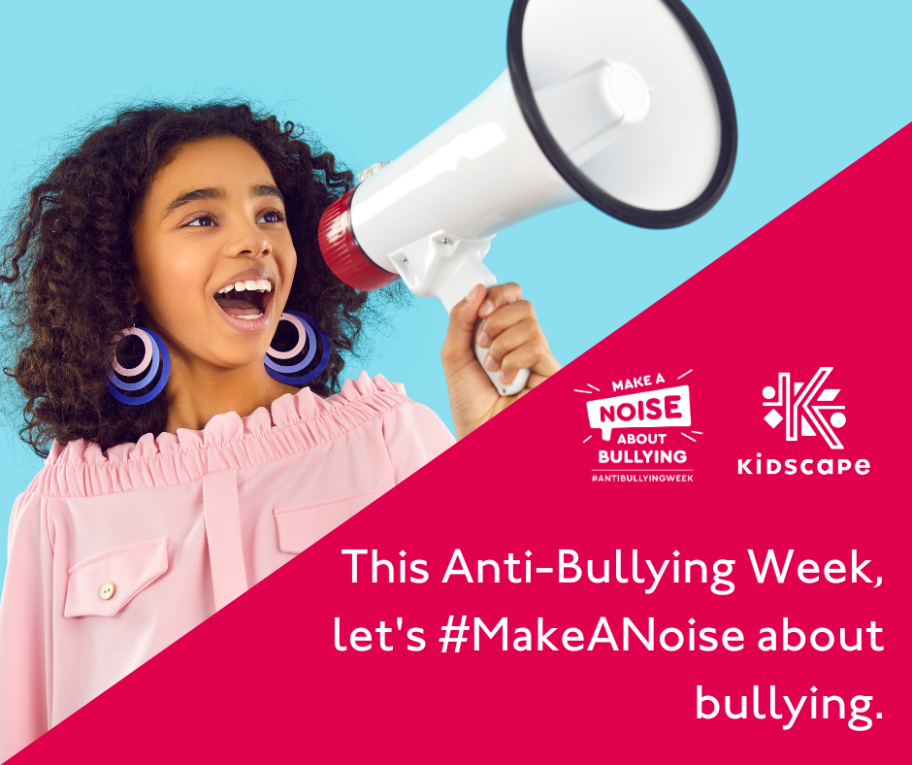Mindful Approaches to National Stress Awareness Week by Kidscape
It’s International Stress Awareness Week, and at Kidscape, we want to take the opportunity to remind you that your mental health matters.
Growing up comes with its fair share of challenges, and sometimes it can feel like the world is a bit too much to handle. But remember, you are not alone, and there are always people who care about you and want to help.
Your mental health is just as important as your physical health. Just like you take care of your body, it’s essential to take care of your mind. Your mental health affects how you think, feel, and act. It influences how you handle stress, relate to others, and make choices. It’s crucial to understand that seeking help for your mental health is a sign of strength, not weakness. Just as you would see a doctor for a physical illness, it’s perfectly okay to seek support for your mental well-being. Building a strong support network of friends, family, and mentors can make a significant difference in your mental health journey.
One important part of taking care of your mental health is being kind to yourself. Here are some ways to cultivate self-compassion:
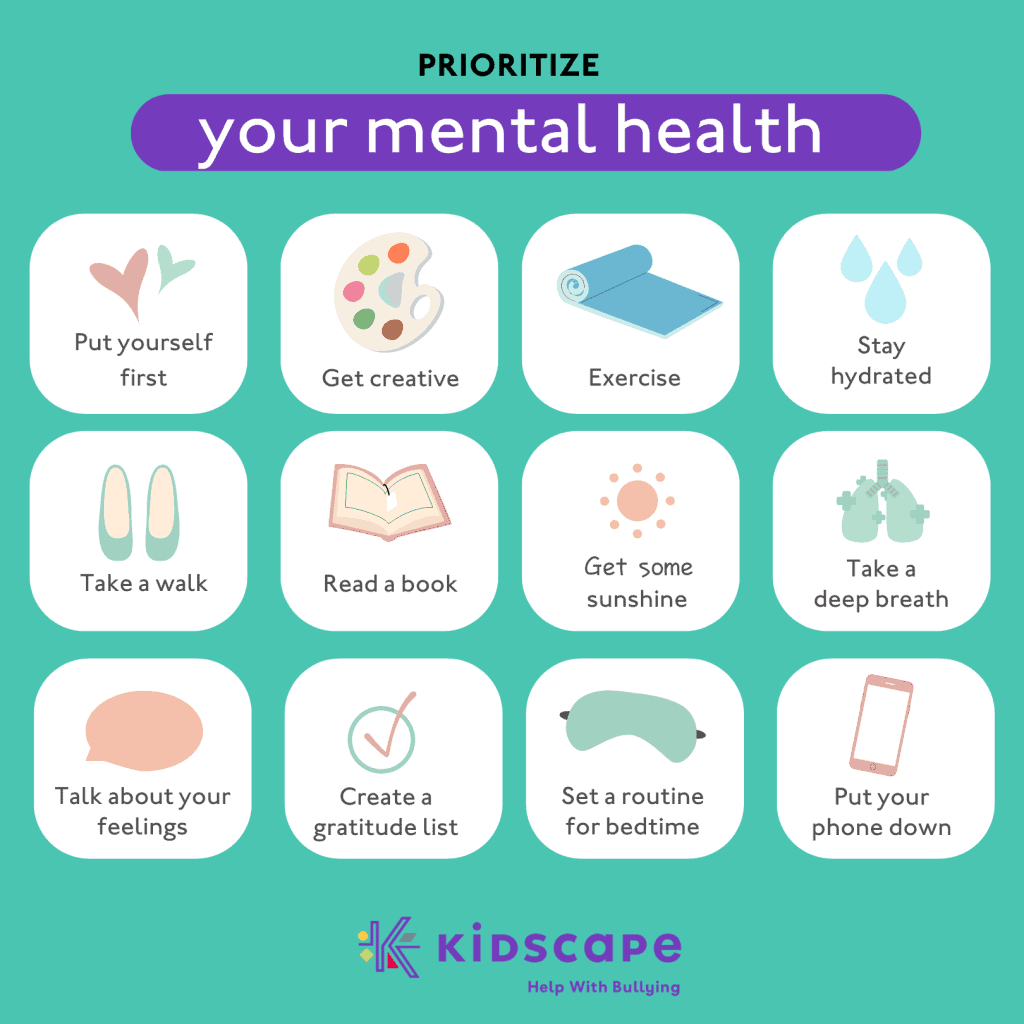
Positive affirmations:
Replace negative self-talk with positive affirmations. For example, instead of “I’m not good enough,” say “I am worthy and capable.” Instead of dwelling on your mistakes, focus on your strengths and achievements.
Embracing imperfection:
Understand that nobody is perfect. Embrace your flaws and learn to love yourself as you are. Celebrate your uniqueness and the incredible qualities that make you who you are. Remind yourself of your worth and the amazing things you can accomplish.
Setting boundaries:
It’s okay to say no when you need to. Setting boundaries helps protect your mental and emotional well-being.
If you are feeling stressed and overwhelmed, there are strategies you can try to feel better. Here are a few ideas:
Mindfulness and meditation:
Take a few minutes each day to practice mindfulness. This can include deep breathing exercises or guided meditation sessions using your phone. You can also try grounding techniques like the 5-4-3-2-1. For that, you want to look around and focus on five things you see, four things you can feel, three things you can hear, two things you can smell, and one thing you can taste. Noticing our surroundings helps us get back to the present and stop the anxious thoughts from spiralling.
Get creative:
Art, music, writing, and other creative activities can be powerful tools for expressing and processing emotions. Completing a creative project can also give you a tremendous sense of accomplishment and boost your confidence.
Physical activity:
Regular exercise releases endorphins, which can help improve your mood and reduce stress. Being outside can also make a huge difference for your mental health, so why not go for a run or meet a few friends to play football?
Spend time with your friends:
Your friends can be a tremendous source of support and strength. True friends listen without judgment and offer a shoulder to lean on. They’re there to support you, no matter what.
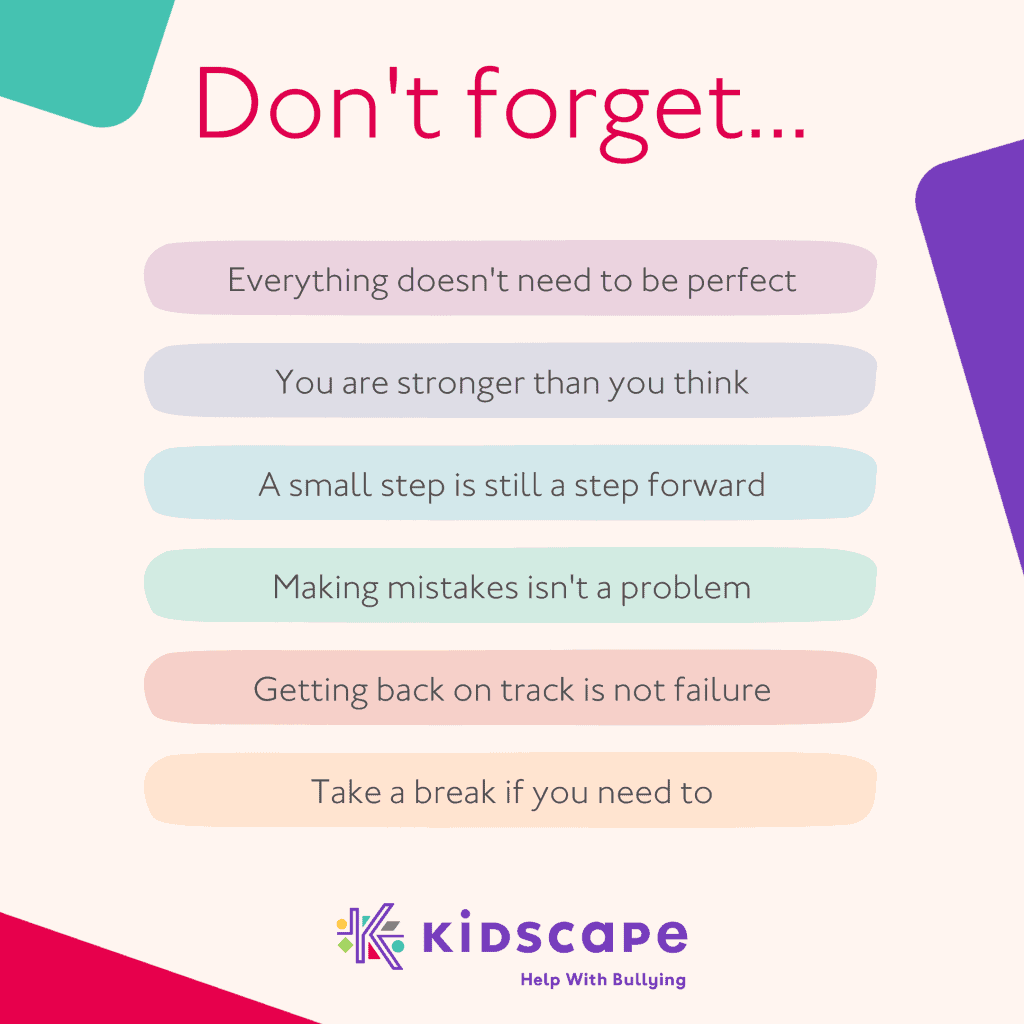
Remember, it’s okay to ask for help. If, after trying these strategies, you’re still struggling with your mental health, consider reaching out to a trusted adult, a school counsellor, a mental health professional, or a helpline or crisis text line. Here are some charities you can contact if you need help with your mental health right now:
- ChildLine – 0800 1111. Free and confidential helpline for anyone under the age of 19 in the UK. You can call any time of day or night.
- Papyrus HOPELINE247 – 0800 0684141. Confidential support line for anyone under the age of 35 who is experiencing thoughts of suicide. You can also text 07860 039 967. HOPELINE247 is open 24/7.
- Shout provides free, 24/7 text support for young people across the UK experiencing a mental health crisis – just text SHOUT to 85258.
